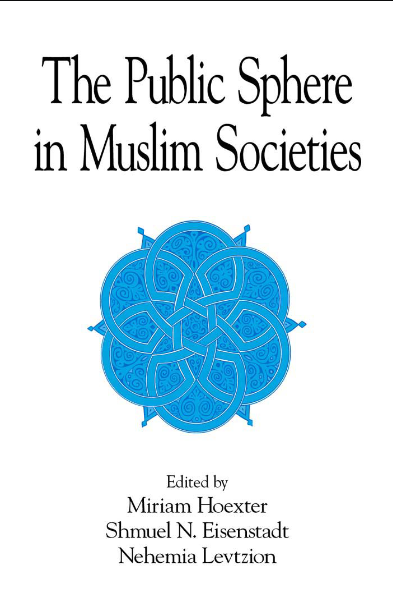Newly released
This book is new and will be uploaded as soon as it becomes available to us and if we secure the necessary publishing rights.

The Public Sphere in Muslim Societies Book PDF
(0)
Author:
Nehemia LevtzionNumber Of Reads:
247
Language:
English
Category:
Social sciencesSection:
Pages:
202
Quality:
excellent
Views:
1867
Quate
Review
Save
Share
New
Book Description
Challenging conventional assumptions, the contributors to this interdisciplinary volume argue that premodern Muslim societies had diverse and changing varieties of public spheres, constructed according to premises different from those of Western societies. The public sphere, conceptualized as a separate and autonomous sphere between the official and private, is used to shed new light on familiar topics in Islamic history, such as the role of the shari`a (Islamic religious law), the `ulama’ (Islamic scholars), schools of law, Sufi brotherhoods, the Islamic endowment institution, and the relationship between power and culture, rulers and community, from the ninth to twentieth centuries.
Nehemia Levtzion
Nehemia Levtzion was an Israeli scholar of African history, Near East, Islamic, and African studies, and the President of the Open University of Israel from 1987 to 1992 and the Executive Director of the Van Leer Jerusalem Institute from 1994 to 1997.
Levtzion was a scholar of African history, Near East, Islamic, and African studies, and especially Islam in Africa. He taught at (starting in 1965) and was Professor of History and Asian and African Studies and the Dean of the Faculty of Humanities (1978-1981) at the Hebrew University of Jerusalem, the Director of the Ben-Zvi Institute for the Study of Jewish Communities in the East (1982-1987), the President of the Open University of Israel (1987-1992), the Executive Director of the Van Leer Jerusalem Institute (1994-1997), and the Chairman of the Council for Higher Education in Israel’s Planning and Budgeting Committee (1997-2003).
The Nehemia Levtzion Center for Islamic Studies was established at the Hebrew University of Jerusalem in 2004.
Read More
Book Currently Unavailable
This book is currently unavailable for publication. We obtained it under a Creative Commons license, but the author or publisher has not granted permission to publish it.
Rate Now
5 Stars
4 Stars
3 Stars
2 Stars
1 Stars
The Public Sphere in Muslim Societies Quotes
Top Rated
Latest
Quate
Be the first to leave a quote and earn 10 points
instead of 3
Comments
Be the first to leave a comment and earn 5 points
instead of 3